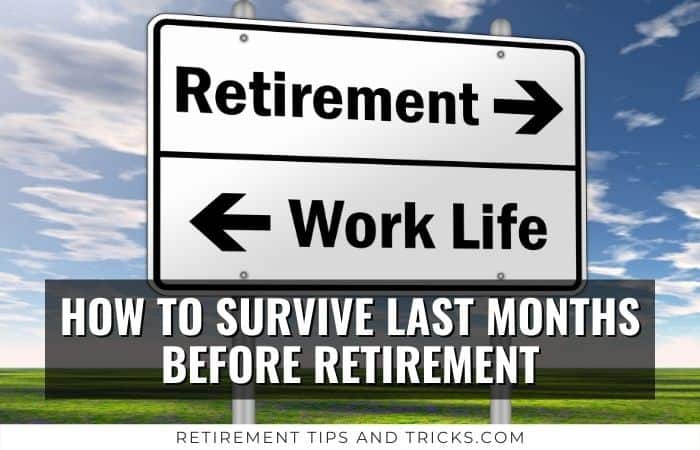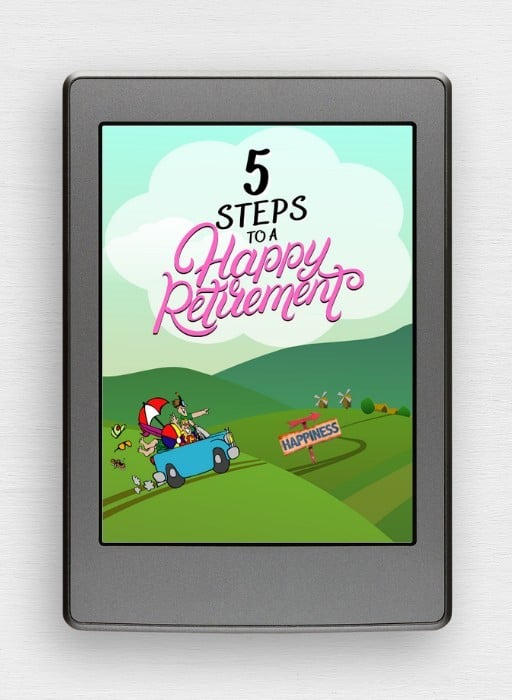
Transitioning into retirement is a significant life stage. While some individuals may experience a spectrum of emotions, particularly those departing from well-established roles, there are proactive strategies to maximize the value of these final pre-retirement work months.
Rather than simply fulfilling the minimum requirements, let’s leverage this time for optimal utilization. The following activities can be implemented to cultivate a fulfilling and enriching pre-retirement experience.
1. Have A “One Day At A Time” Mentality
Dwelling on your upcoming retirement date can fuel impatience and hinder your ability to enjoy the present. Instead, cultivate a “one day at a time” mentality.
Savor your current work experiences and colleagues. Focusing on the present moment can significantly reduce stress and anxiety, promoting a more positive outlook.
2. Work Smarter
As you approach retirement, ease off the gas a bit. Focus on getting things done efficiently instead of putting in maximum effort every day. This could mean delegating tasks, taking longer breaks, or streamlining your workflow.
By working smarter, you’ll have less stress and more time to enjoy your remaining workdays and prepare for retirement.

Secret To A Successful & Happy Retirement
I discovered the secret to a successful and happy retirement.
And I want to share this with you, so I created the ebook: 5 Steps To More Happiness In Retirement.
To help you make your retirement fulfilling, meaningful, satisfying, and lots of fun.
3. Have Fun
Why not inject some enjoyment into your remaining workdays? Don’t feel pressured to take everything super seriously. Instead, loosen up, relax, and let go of any unnecessary stress.
Embrace a more lighthearted approach with your colleagues. This shift can significantly enhance your overall enjoyment and leave you with positive memories as you move toward retirement.
If you haven’t announced your retirement yet, then check out my article: 21 Seriously Funny Ways To Announce Your Retirement.
4. Take A Step Back Emotionally
Your job is just one part of who you are. Detach your self-worth from daily tasks and deadlines. This shift allows you to explore new passions and activities outside of work. You can experiment with hobbies or even volunteer, building a fulfilling life beyond the office.
Allowing yourself to take this step back emotionally can lead to a smoother transition into retirement and the pursuit of new experiences.
5. Create A Bucket List For Your Retirement
Use your remaining time at work to create a personalized bucket list for your golden years. This isn’t just about exotic trips, it’s about capturing all your dreams. Whether it’s mastering a new skill, volunteering for a cause you care about, or finally writing that novel, jot down your aspirations.
Having a clear vision of your post-retirement goals will fuel excitement and give you a roadmap for a fulfilling and purpose-driven next chapter.
6. Make A To-Do List
Take control of your remaining workdays by creating a to-do list. Break down larger tasks into manageable weekly or daily goals. This clear plan will keep you motivated and focused, ensuring a smooth transition into retirement.
As you check off completed tasks, you’ll gain a sense of accomplishment and stay on track to achieve your retirement goals.
7. Work On Your Financial Retirement Plan
Before your last day, take charge of your financial future. Schedule meetings with your financial advisor and HR to discuss retirement plans, healthcare options, and social security.
Also, use this time to assess your savings and accounts and make sure they align with your retirement goals. This might involve creating a budget, establishing an emergency fund, or looking into Medicare.
Tackling these financial tasks now can allow you to enter retirement feeling confident and prepared.
8. Use Your Vacation Time
As you approach retirement, consider using your accumulated vacation days for extended weekends or mini-breaks. This not only provides a well-deserved opportunity for relaxation before your official departure but also allows you to experiment with a more flexible schedule.
Meanwhile, know that a gradual transition into retirement can be particularly appealing. Part-time work during your final months offers the benefit of maintaining a sense of structure and income generation while simultaneously allowing you to explore new hobbies and interests.
It’s important to consult with a financial advisor before pursuing part-time work to ensure it aligns with your overall retirement plan and avoids any unforeseen financial implications.
9. Clean Out Your Work Space
Use downtime to organize your desk and digital files. Get rid of unnecessary papers and emails, and return borrowed items. This not only reduces stress but also helps you leave a clean space for your replacement, promoting a sense of closure as you move on to retirement.
10. Work On A Smooth Transition
Take steps to ensure a smooth transition for yourself and your colleagues. Help train your replacement by sharing your knowledge and expertise.
Create a clear and concise document outlining important details like upcoming deadlines, file locations, and client information. Doing so will minimize disruptions and make the process easier for everyone.
Leaving things well-organized not only benefits your team but also allows you to depart with a sense of accomplishment and pride in your work.
11. Plan Your Retirement Celebration
Retirement is a major accomplishment, so take time to celebrate! Plan events that resonate with you, whether it’s a quiet dinner with your significant other, a weekend getaway with family, or a celebratory gathering with close friends.
Tailor these celebrations to your interests and the people who matter most, creating lasting memories and marking the exciting start of your next chapter.
Read: 30 Amazing Ideas To Celebrate Your Retirement
12. Organize Your Goodbyes
Take advantage of the time leading up to your retirement to plan meaningful farewells to colleagues in addition to your retirement celebration. Saying goodbye thoughtfully and appreciatively can contribute to a sense of closure and a positive start to retirement.
Consider options such as giving a retirement speech or expressing gratitude to coworkers with special gifts or gestures during a meeting. For additional inspiration and ideas on thanking coworkers when retiring, consider reading the article: How To Thank Your Coworkers When You Retire.
13. Get Mentally Prepared For Retirement
Recognize that retirement is a process requiring adjustment to a new lifestyle with different priorities and freedoms. Understanding the stages of retirement can help alleviate anxiety and prevent depression during the transition.
Be aware that most retirees go through five stages of retirement, which often involves anticipation, liberation, reorientation, routine, and stability. Being informed about the retirement process can empower you to navigate the transition more smoothly and adapt more effectively to the changes.
Being mentally prepared for retirement can let you approach this new phase of life with confidence and resilience, ensuring a fulfilling retirement experience.
Read: Complete Guide Through The Five Stages Of Retirement
14. Live Like You’re Already Retired
Get a taste of your future by incorporating some retired living elements into your current routine. This helps you adjust and identify areas you might want to focus on later.
Try living on a practice retirement budget. Explore hobbies, volunteer work, or clubs that spark your interest. These activities not only fill your free time but also help build a foundation for a fulfilling retirement.
So, rehearse your retirement now, to ensure a smooth transition and a future filled with purpose.
15. Get Started On New Hobbies
Begin exploring potential retirement hobbies now to discover activities that bring joy and fulfillment. Starting hobbies before retirement allows time to find enjoyable pursuits and develop skills.
Engaging in hobbies promotes relaxation, creativity, and personal growth, enhancing overall well-being in retirement. Consider reading my article How To Find A Hobby That You’ll Love for guidance on discovering hobbies suited to your interests and preferences.
Conclusion
Retirement doesn’t have to be an abrupt ending. By engaging in the activities and tasks mentioned in this short list, you can transform your remaining work months into a fulfilling springboard to a happy and purpose-driven retirement.
As an aside, you may want to stick around and read my recently published articles! Some of them are the following:
- A Free Guide On How To Craft A Memorable Retirement Speech
- Send A Retiree Off Smiling: 120 Retirement Wishes For A Friend
- Unique Retirement Poems: Celebrate Their New Chapter
- Retirement Card For Husband: Heartfelt Messages To Celebrate His Journey
- Guide On How To Write A Heartwarming Retirement Card For A Coworker
Happy reading!